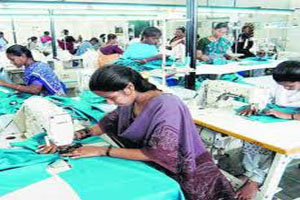
Changes proposed in Indian labour law immensely for textile sector
YarnsandFibers News Bureau 2014-09-18 17:00:00 – New DelhiTo achieve textile growth targets skilled manpower of 35 million will be required by 2024-25. Also, initially training needs to be increased to generate the supply of about 1 million trained workers annually and to ensure that in the next three years, the entire new workforce entering the sector is formally trained and certified.
Keeping this in mind, some changes in the labour law especially for the textile sector are needed at the earliest as much of its export competitiveness has been modest due to the restrictions of the labour laws. Although there is a already a review of the labour lows in India to cater to the obligations of International labour Organisation (ILO), Official sources said.
A slew of measures have been recommended for reforms in labour laws particularly for textile sector pending lengthy legislative amendments of labour laws. Such changes will not require legislative amendments but are imminent to cater to the urgency of the textile sector.
Some of the measures include removing the restriction on women from working in night shifts, albeit with satisfactory safety and security arrangements, fixed term employment for engagement of workforce in fixed term employment and removal of cap on overtime etc.
Women constitute majority of the garment workforce and at present there is a restriction on women from working in night shifts. With adequate safety conditions, at least for the textile industry these rules can be relaxed. Similarly, restriction on fixed term employment creation in organised sector force workers to work in unorgsanised sector and sub standard working condition. The manufacturers in organised sector, on one hand are also reluctant to take burden of permanent work roll but at the same time complain of manpower in peak seasons.
It is therefore recommended that while fixed term employment should be allowed in the sector, the cap on overtime should be relaxed at the same time.
Currently, there is a cap on overtime for more than 50 hours in a calendar quarter and total number of hours of work per week including overtime should also not exceed 60 hours.
Based on the study conducted by the textile ministry recommendation has been done for the export business in the textile sector which is both seasonal and contractual in nature. According to officials, excess labour during lean periods or during initial stages of developing an export market(s), when order uncertainty is high, can lead to financial difficulties. Hence, there is a proposal to give blanket exemption to the Export Oriented Units (EoUs) to allow contractual labour without any restriction. These recommendations are being considered for textile sector to start with.
Another recommendation done is that the existing skill development initiatives through the Sector Skill Council should be appropriately scaled up in partnership with the industry.
Market Intelligence
Ask for free sample Report

experience
Customer Base
dedicated team
Countries Served Worldwide









